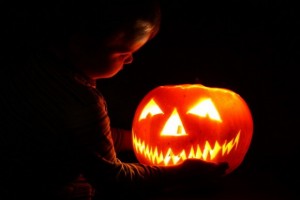At 6:00 p.m. next Saturday evening, October 31, 2015, October 31, 2015, I will intone the opening doxology of Great Vespers—“Blessed is our God, always now and ever and unto ages of ages. Amen.” During this service, we inaugurate the liturgical cycle of the Lord’s Day—the Day of Resurrection. In Great Vespers we sing and chant many hymns through which we glorify the Risen Lord and praise His “holy resurrection” from the dead. This will culminate on Sunday morning when, at the Divine Liturgy, we will receive the Body and Blood of Christ “unto life everlasting.” This is a cycle of anticipation, preparation and fulfillment. Regrettably, it is a liturgical cycle that many faithful do not experience, but it continues to be observed on a weekly basis in Orthodox parishes throughout North America. It remains a challenge to the planning and priorities of our families to this day. It is a service often ignored by choice.
As we continue to celebrate the Lord’s Day cycle beginning with Saturday evening’s Great Vespers, I have the feeling that the intonation of the doxology this coming Saturday evening is going to be drowned out by the simultaneous intonation of “trick or treat,” for October 31 is the annual “celebration” of Halloween. Then, in response to this squeaky-voiced warning, many participating home-dwellers will recoil with feigned horror or stare with exaggerated astonishment at their doors as an assortment of costumed characters will crowd their porches in expectation of some tasty treats. A host of Darth Vadars and fairy princesses and zombies will jostle for position in anticipation. Their bags or plastic jack-o-lanterns will then be duly filled. Parental voices from the sidewalk will arise out of the shadowy darkness to remind these disguised creatures to offer up a “thank you” in response. The “rubrics” for Halloween are about as established as the liturgical rubrics for Great Vespers and other services of the Church.
Consciously or unconsciously, Orthodox Christian parents will be making a choice for their children or, if children are no longer a factor, about their Saturday evening activities on Saturday, October 31. The vigil for the Lord’s resurrection at Great Vespers or Halloween? Being fully realistic, I realize that this is not much of a choice! Next to Christmas itself, Halloween has to be the most anticipated day of the year for younger children—and, alas, for many adults also (but my sympathy does not extend that far). This is coupled with the fact that Great Vespers is already “foreign terrain” or off the “radar screen” for many/most as it is. Nothing seems more unnatural than Halloween on Saturday evening and the Divine Liturgy on Sunday morning. In the event-to-event pacing of our lives, such a jarring juxtaposition goes unnoticed. Nevertheless, a choice remains, and Great Vespers will not be canceled next Saturday because it’s Halloween!
My comments concerning this next “battle of the calendars” in our lives are not prompted by my belief that Halloween is a threat to our Christian faith—and certainly not because I believe it to be “demonic” or something along that order. Whatever the origins of this celebration that religious anti-Halloween groups like to point to as “proof” of Halloween’s insidious and evil intent, it is clear today that Halloween is far too domesticated, trivialized and commercialized to pose an immediate threat to anyone or anything. Parents simply want their children to “fit in” and collectively enjoy themselves with their peers. True, there are some cruel pranksters out there that parents have to be vigilant about, but essentially “All Hallows Even” has been reduced to “fun,” and what can be more innocuous than that?! Still, I would imagine that Halloween’s annual staying power is primarily driven by its commercialization. I have been informed that Halloween is second only to Christmas in terms of commercial viability. As long as “trick or treat” can be translated into big bucks, Halloween will be with us “unto ages of ages.” Hence, the proliferation of Halloween paraphernalia. Costumes, Halloween greeting cards, outdoor decorations, candy, etc. can turn Halloween into a veritable family budget item.
If Halloween were not so “big” I would not address its place in our culture. It is a “feast day” of huge significance on our secular calendars. The Feast Days of the Church—with the exception of Nativity and Pascha—cannot “compete” with Halloween for our attention, focus and commitment. I find this to be a genuine pastoral concern, now and for the future. However, pastoral commentaries, even if delivered with a certain sense of balance and “objectivity,” will not likely transform those patterns in a more ecclesial direction. But I do believe that raising our level of awareness prompted by these “cultural issues” is necessary. We need, as Christians, to think and evaluate all things critically. This brings me to my point: we often fail to do that, or we “pick and choose” with a certain arbitrariness that suits our “comfort level.” For, precisely as Christians, we often indulge in criticism of the prevailing culture. And we can get pretty judgmental or negative in our assessment of current trends. We can shake our heads or cluck our tongues at a great deal that is “out there.” We can carry on eloquently about “cultural wars.” And we will justifiably protect our children to the extent possible. But we are very much a part of the prevailing culture inasmuch as we may be unaware of, and partake of, its “delights,” perhaps more than we would like to admit. To what extent can the cultural patterns of Christians be distinguished from non-Christians—or better yet, non-believers? As long as that is the case, we need to be careful about our (hypocritical?) judgments of others and their practices. Perhaps this is a rather trivial example, but our “choice” for Halloween may just reinforce my reflections.
My purpose is not to talk anyone into or out of anything but, rather, to raise issues as they come up. And October 31 of this year brought some issues to mind.



















